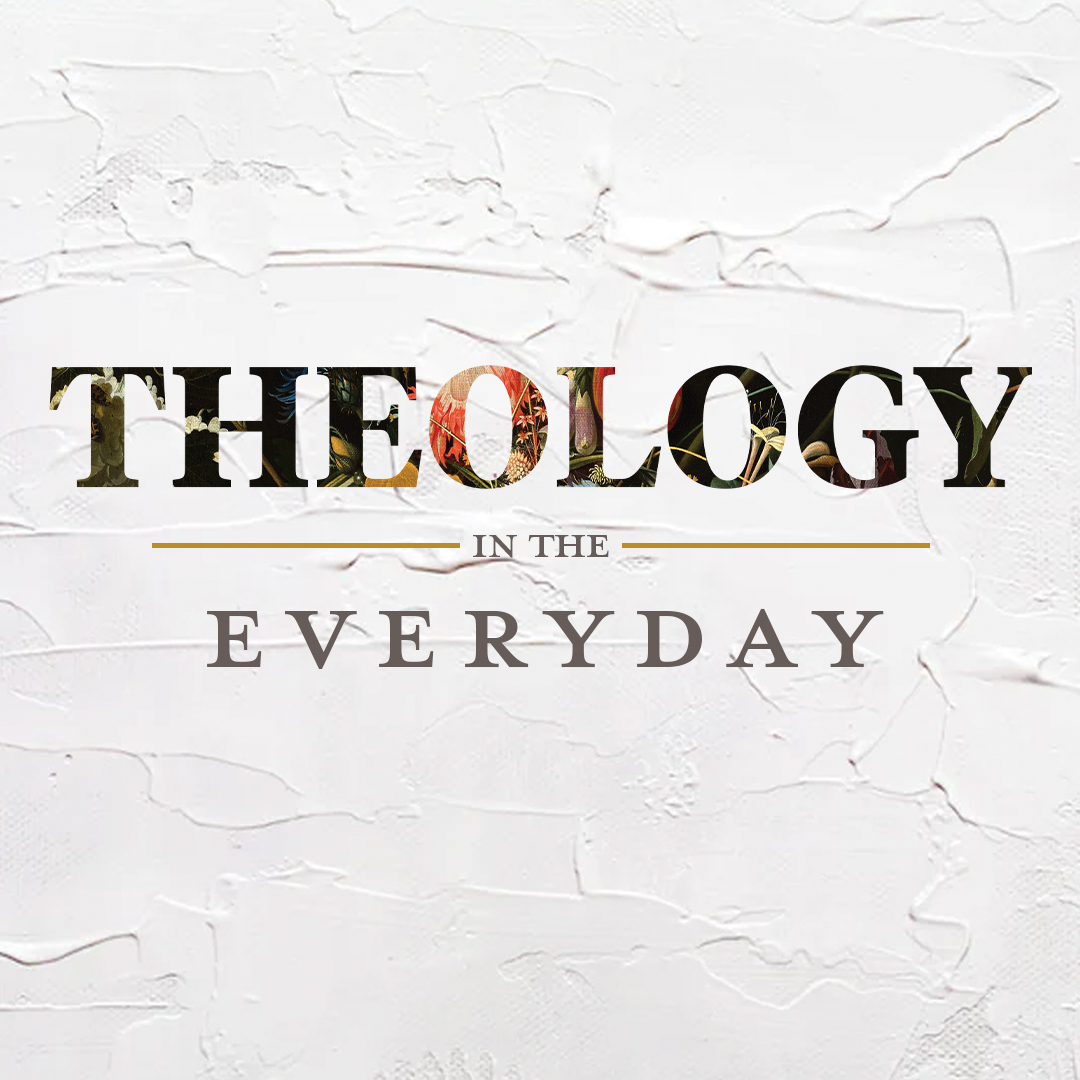

Editor’s Note: The Theology in the Everyday series seeks to introduce and explain theological concepts in 500 words or less, with a 200-word section helping explain the doctrine to kids. At For The Church, we believe that theology should not be designated to the academy alone but lived out by faith in everyday life. We hope this series will present theology in such a way as to make it enjoyable, connecting theological ideas to everyday experience and encouraging believers to study theology for the glory of God and the good of the Church. This week, eschatology.
Conversations on “eschatology” can go off the rails quick. The word conjures up in many of our minds debates about Israel, or images of books with dark and threatening titles and covers with fire and red moons, and the whole topic can leave us befuddled and tired. Because of this, many of us are tempted to just avoid the topic altogether. This is unfortunate because the hope of God’s climactic conclusion to human history is one of the Bible’s central hopes. If this area of Christian theology gripped the minds and hearts of the biblical authors, we cannot ignore it. However, this does not mean that we have no reason to be skittish. Why? Because the whole conversation has, unfortunately, been boxed into a very narrow set of concerns. For the most part, the sum and substance of our eschatological debates surround questions related to the timing and sequence of the return of Christ and the final events of judgment and restoration. To talk about eschatology, we think, is to talk about Revelation 20 and the thousand years mentioned there. Are they literal or figurative? Are they referring to an earthly kingdom before the final judgment or do they refer to Christ’s reign in heaven right now? If the former, are they describing a golden age of earthly prosperity before or after the return of Christ?
Now, to be clear, these questions are not unimportant. We tend to ride what we might call the “millennium pendulum,” swinging from one excess to another—either we minimize the significance of these questions, or we maximize their significance as something worth dividing over. The truth is, neither extreme is important. On the one hand, an ambivalence is wrong because the way we answer these specific questions about Revelation 20 is determined by our understanding of the whole Bible. The way you relate New Covenant Christians to Old Testament prophecies about “Zion” and “Israel” and “Jacob” is not a small matter—your whole understanding of how to put the Bible together is going to shape the questions and answers generated by your reading of Revelation 20. On the other hand, the topic of eschatology is way more massive than even those important questions.
Eschatology is about God’s ultimate goal—his telos, his purpose, his intended end—of creation. God makes nothing purposelessly—to exist is to have a telos. And the telos of creation is its glorification. Which means, eschatology precedes creation. For you to exist as a human being is for you to be a character within a story that is being written by a sovereign Author who is in the process of bringing his story to its perfect conclusion. This is what all creation was made for, and what all human beings in their fullest realization of God’s purpose for them can hope to experience: God’s glory in their glorification. This means that despite the many differences the divide Christian Eschatologies from one another, the most significant difference regarding eschatology is not a matter of what distinguishes premillennialists from postmillennialist or amillennialists, but rather what distinguishes all Christians from every other portrayal of history.
Regardless of your position on the millennium, then, I think it’s possible to sketch out what we might call a “mere Christian eschatology.” Here’s how I would describe it: Eschatology is the theology of last things. This area of theology encompasses the biblical purpose of creation, the biblical prophetic disclosure of the events and circumstances leading up to final telos of the cosmos, as well as the major elements of this telos’s realization, including (a) the bodily return of Jesus Christ to earth (Acts 17:31; Jn 5:22-27; 1 Thess 4:17; Rev 19:11-16), (b) the bodily resurrection of the dead (Acts 24:32-46; Jn 5:28-29; Phil 3:21; 1 Cor 15:12-49), (c) divine judgment, whereby the unrighteous are condemned to hell and the righteous are glorified to inherit the fullness of eternal life (Matt 12:36; 25:32-46; Is 66:24; Dan 12:1-3; 2 Cor 5:10; Rev 20:11-15), and (d) the glorification of all creation, with the consummation of the New Heavens and the New Earth, where the saints will dwell bodily in perfect communion with God forever (Is 65:17; 66:22-23; Rom 8:22-25; 2 Pet 3:8-13; Rev 21:1-22:5).
How can we be certain these things are actually going to happen? Because, in a very real way, the end has already been inaugurated with the death, burial, resurrection, and ascension of Jesus! The day he rose from the dead, he guaranteed that all these biblical promises were not just pipe dreams or wishful thinking. The glorification of the heavens and the earth (or, you might say, the resurrection of the heavens and the earth) is no longer a distant, hoped-for dream—it hasn’t been that for over two millennia, because when Jesus busted out of the grave, he was the first fruits—the early spring budding—of all those glorious promises coming to fruition.
We who have trusted in Christ have come to know what Martha learned from Jesus’s own lips: He is the resurrection and the life (cf., Jn 11:17-26). Knowing these things, and believing them, infuses every part of our lives with meaning. Eschatology means that all the atrocities we see, all the pain and natural and moral evil we experience, all have an expiration date. It means that the stakes in evangelism cannot be higher—we are talking about matters of everlasting life and death. It means that no one who has ever been buried will stay that way—all the “garden” graveyards will yield their dead who will inherit either everlasting life or everlasting judgment (1 Cor 15:23). It means that our final hope isn’t to die and go to heaven, but rather for heaven to come to earth. It means that those whom we love who have died trusting in Christ, though they are currently present with him—perfectly joyful—in a (mysteriously) bodiless way (Phil 1:23-24), are waiting for the very thing you are waiting for: resurrection and the glorification of the heavens and the earth. Perfect, ceaseless enjoyment of God in a glorified body in a glorified cosmos—this is our hope and our promise.
For the Kids:
Kids, do you love stories? Of course you do! Everyone does. That’s because God made us to love stories. Do you know why? Well, there’s a lot of reasons, but the main reason is that God also loves stories, and He made us to be like Him in that way. Now, what if I were to tell you that you are in a story? It’s true; you are a character within God’s story—all of us are. You see, God is writing a story called “history”—it began in the beginning (of course) with creation, when He spoke and said, “let the universe exist” and the universe came to exist. It’s the story we read about in the Bible—and this story—the history of our world—is still being written by God. So, you’re here because God decided this story could use a “you” character in it.
Now, you know—if your parents are Christians and have taught you about the Bible—that one of the most important parts of this story is when God the Father’s eternal Son became a man, when He lived, and died, and was buried, and rose again from the dead, and came back to heaven. You also know, I hope, that if you trust in Jesus to take away your sins and give you a heart to love and worship Him, you will get to go to heaven when you die—your soul will get to be with Jesus. But did you know that that’s not the end of the story. No, the end of the story is way better than that!
There’s a lot that we don’t know about what will happen in this story between now and the end, but we know several things about what will happen at the very end. We know, for example, that Jesus will return to this earth in the same body that went up to heaven. We know that Satan and all his followers will be defeated by Jesus—the warrior-King—and that every wrong ever committed in this world will be righted. We know that after He comes back, Jesus is going to heal this world of every hurt and will bind up and mend every broken thing. And we know that when He comes back, we will get new bodies. We don’t know exactly what those new bodies will be like, but we know that they will be unimaginably better than we could even dream of; and they will be matched by a new world that is just as amazing. And, most importantly, we know that we will be with Jesus and will enjoy being with Him forever and ever and ever!

